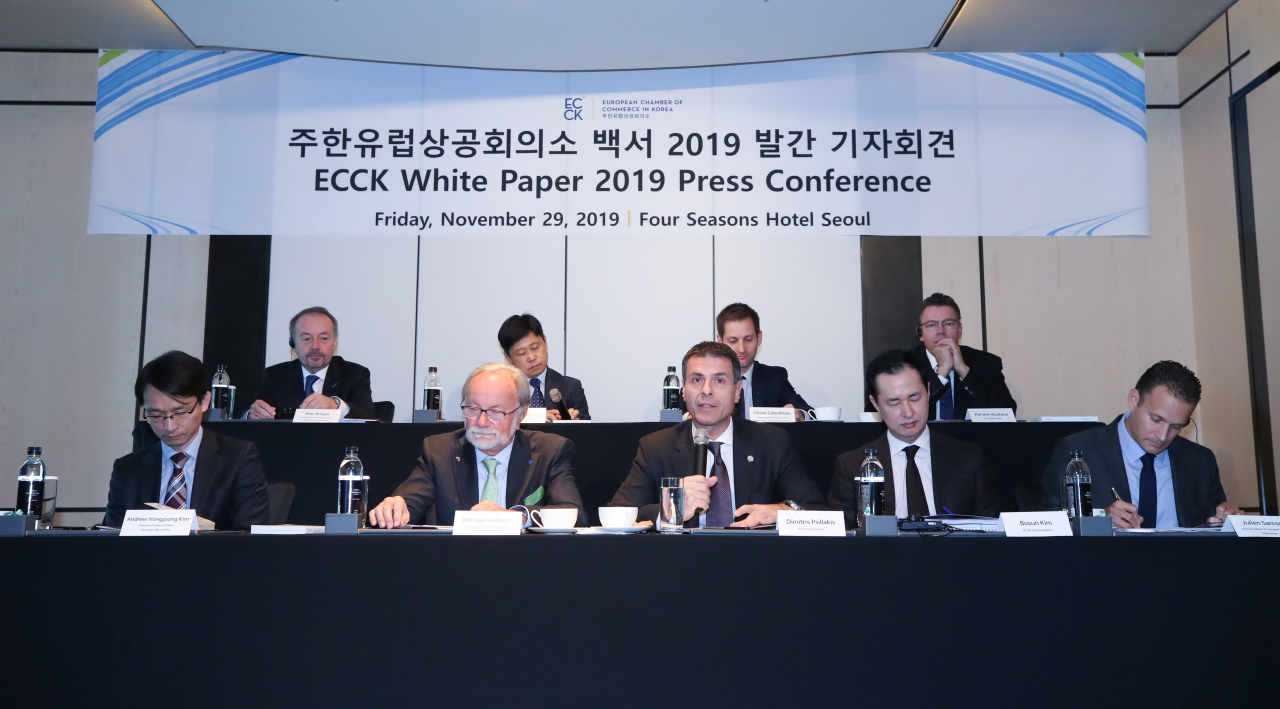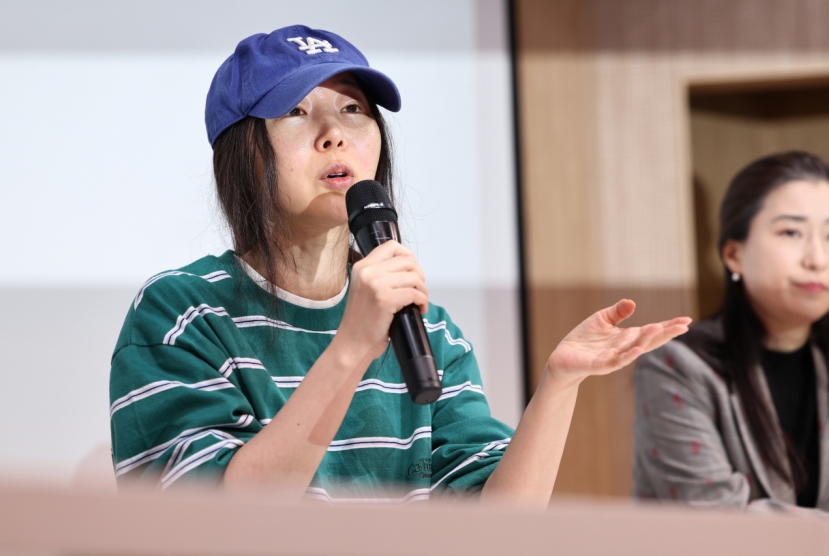European companies say level of Korean business law ‘tough’
By Shin Ji-hyePublished : Nov. 29, 2019 - 15:47
The European business community in Korea on Friday called for efforts to create a business-friendly climate for both Korean and foreign companies here, citing a growing number of criminal charges and regulations that hinder foreign investment.
“Korean laws are very tough,” said Michael Reiterer, ambassador of the European Union to Korea, at an event held by the European Chamber of Commerce in Korea, claiming that stricter regulatory measures were being imposed on foreign companies.
“The widespread perception among foreign investment companies here is they are relatively more subject to Korean multi-agency investigations. In certain cases, companies operating with a good cause may find themselves criminalized,” he said.
“Korean laws are very tough,” said Michael Reiterer, ambassador of the European Union to Korea, at an event held by the European Chamber of Commerce in Korea, claiming that stricter regulatory measures were being imposed on foreign companies.
“The widespread perception among foreign investment companies here is they are relatively more subject to Korean multi-agency investigations. In certain cases, companies operating with a good cause may find themselves criminalized,” he said.

Korea holds executives criminally responsible for legal violations by their companies that would normally be dealt with through civil procedures in other developed nations.
When becoming a CEO here, he or she can be subject to such criminal charges under a total of 2,205 articles, according to the Korea Economic Research Institute.
Andrew Kim, director of external affairs of Mercedes-Benz Korea and ECCK passenger vehicles committee, said, there are also too many cases of criminal charges being applied under vehicle-related laws.
“It is understandable that criminal penalties are imposed for the violation of environmental rules. But even on small issues related to certification or tariffs, there are also criminal charges,” he said.
The business leaders also said Korea had too many regulations that impede business and investment.
ECCK Chairperson Dimitris Psillakis said in Korea there were still many cases where rules and regulations that affect foreign and domestic businesses change too quickly without adequate input from stakeholders.
“In many instances, (this happens) without adequate evaluation on whether the new policies will have the desired effect without unintended consequences. To attract and maintain long term investments, it is important that the government creates a right corporate business atmosphere,” he said.
On the day, ECCK released its fifth edition of “ECCK White Paper,” which is a collective expression of the views on the business environment in Korea by ECCK member companies operating in a wide range of industries. The event which touched upon key industry issues and suggestions across 20 different sectors in Seoul was attended by CEOs of companies from fields of industries, including health care, food, vehicles and insurance.
“We hope that the White Paper will serve as a constructive communication tool for both the Korean and European authorities in looking for ways to maintain a mutually beneficial strategic relationship,” Psillakis said.
By Shin Ji-hye (shinjh@heraldcorp.com)


![[Herald Interview] 'Amid aging population, Korea to invite more young professionals from overseas'](http://res.heraldm.com/phpwas/restmb_idxmake.php?idx=644&simg=/content/image/2024/04/24/20240424050844_0.jpg&u=20240424200058)
















